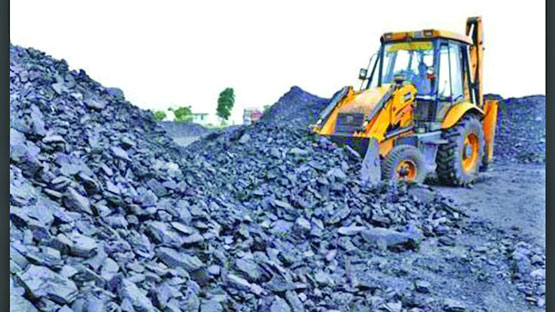The coal source and destination are the same, and the route is the same, yet there is a huge difference in the fares of different ships. Some power plants are charging $12 per ton, while others are charging as much as $19.
Why is there such a huge difference in ship fares on the same route? The question has been raised whether the dollar is being doubled through over-invoicing. And the arrow of this suspicion is towards the state-owned Rampal 1320 MW coal-based power plant, Payra 1320 MW coal-based power plant and Patuakhali power plant.
Six power plants in the country are operating with imported coal. Of these, two are owned by private companies. Considering the price and distance of coal, coal is currently supplied to all power plants from Indonesia. In more detail, coal is coming from South Sumatra and East Kalimantan areas of Indonesia using the Murapantai and Murabaru ports.
Mother vessels (large ocean-going ships) are entering Bangladesh via the Indian Ocean route. With a few exceptions, the 60,000-ton vessels are anchored in the deep sea at Kutubdia in Bangladesh. From there, coal is being unloaded on barges and taken to the power plant.
In the case of Payra Power Plant, after unloading 50 percent, the mother vessel is being taken to Payra Port. And after unloading half of the coal from Rampal Power Plant, it is being taken to Mongla Port. In the case of Rampal, there is some variation depending on the season, in the dry season, large ships are taken to Harbaria Point in the Pashur Channel. At other times, coal is unloaded by anchoring at Kutubdia. Since the distance of different power plants from Kutubdia is different, the barge fare is expected to differ. The difference in fare is visible there.
The bill for Rampal power plant, including ocean freight and inland lighterage, is $35, for Payra, about $32 with lighterage (partial) of $14, for Barisal power plant, freight is $12 with lighterage of 80 paisa per kilogram, for Banshkhali power plant, $12 with lighterage of 85 paisa per kilogram, and for coal imported from Adani, the bill for ocean freight is $12, rail transportation is $17, and others are $35.
Primary energy expert Maqbul E-Elahi Chowdhury has commented that the huge difference in the charges being charged in the name of ocean freight is unacceptable.
He told Barta24.com, “If the distance to the coal field in the Indonesian part is more or less. It is necessary to see whether there is any difference there or not.”
After investigating this matter, it was learned that the agreement to deliver to the ship is with the exporter. That is, the charge that the companies are paying in the name of ocean freight is only the sea fare.
Power Development Board sources said that the Banshkhali 1320 MW coal-based power plant and Barisal 307 MW power plant, owned by private companies, have been given a freight charge of $12 per ton.
On the other hand, the Rampal 1320 MW power plant jointly owned by Bangladesh and India is charged at $18 to $19, the Payra 1320 MW power plant jointly owned by Bangladesh and China is charged at $16 to $18, and the Matarbari power plant is charged at $14 to come to the jetty. That is, the bill is about $7 per ton higher in Rampal than in Banshkhali and Barisal power plants, and $4 to $6 per ton higher in Payra. If it is $6 per ton higher, an additional $360,000 has to be added for a ship loaded with 60,000 tons of coal, which stands at 44.64 million (124 taka) in Bangladeshi taka.
Even though the source, route and destination of the coal are the same, whose pocket is the huge difference in ship fare? Or is some party laundering dollars through over-invoicing? Primary energy expert Maqbool-e-Elahi Chowdhury has demanded action through a transparent investigation into the matter.
Engineer Hasibul Hasan, Managing Director of Bangladesh-China Power Company, the operator of the Payra coal-based power plant, did not answer the phone when called several times regarding the high freight charges. He did not even respond to SMS.
Advisor on Power, Energy and Mineral Resources Dr. Faozul Kabir Khan told Barta24.com that a committee is examining the issues. Action will be taken after receiving the report.
The Power Development Board recently released the production cost estimate for the Matarbari power plant. Based on that estimate, the Power Department has announced a review of the production cost of other coal-fired power plants.

